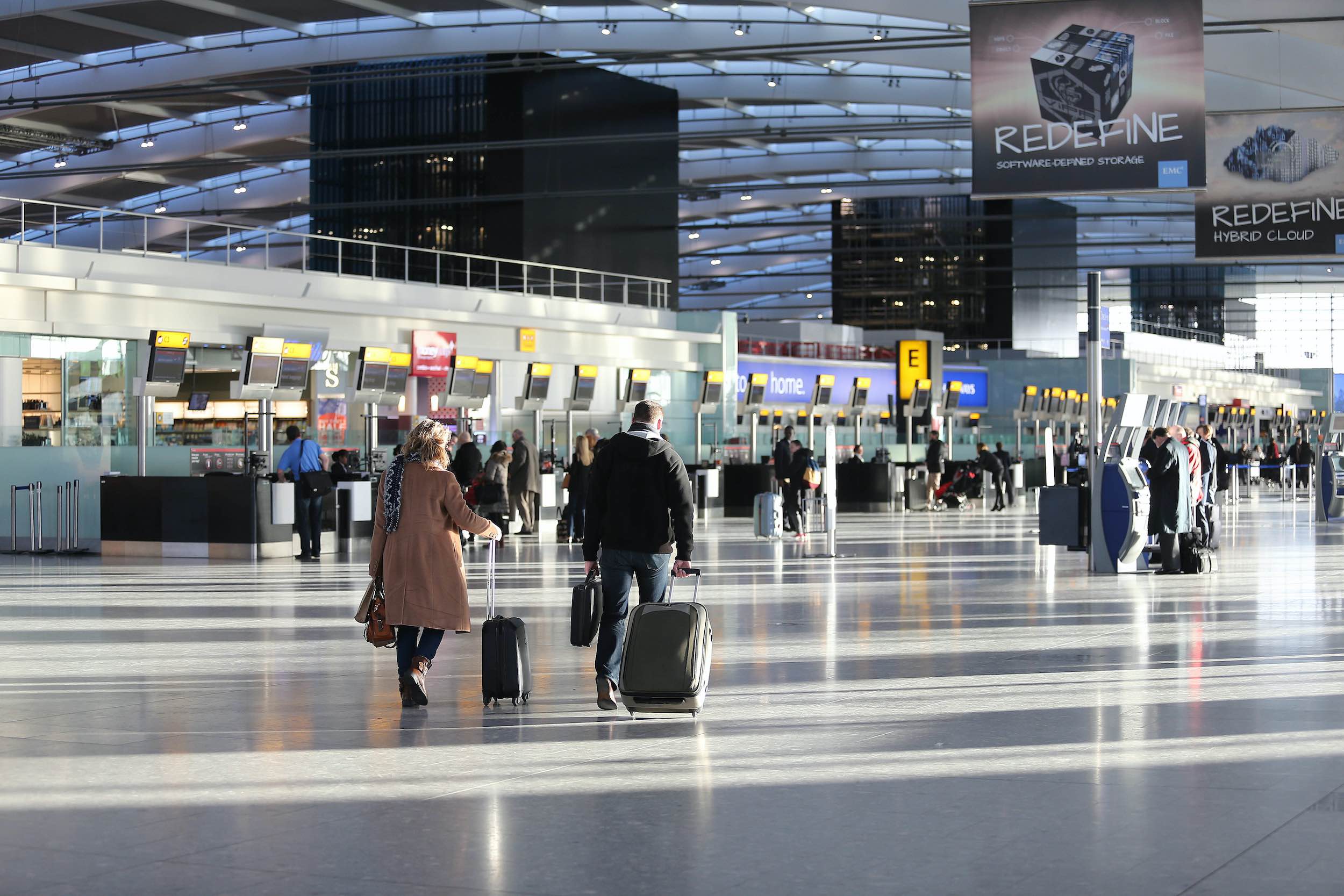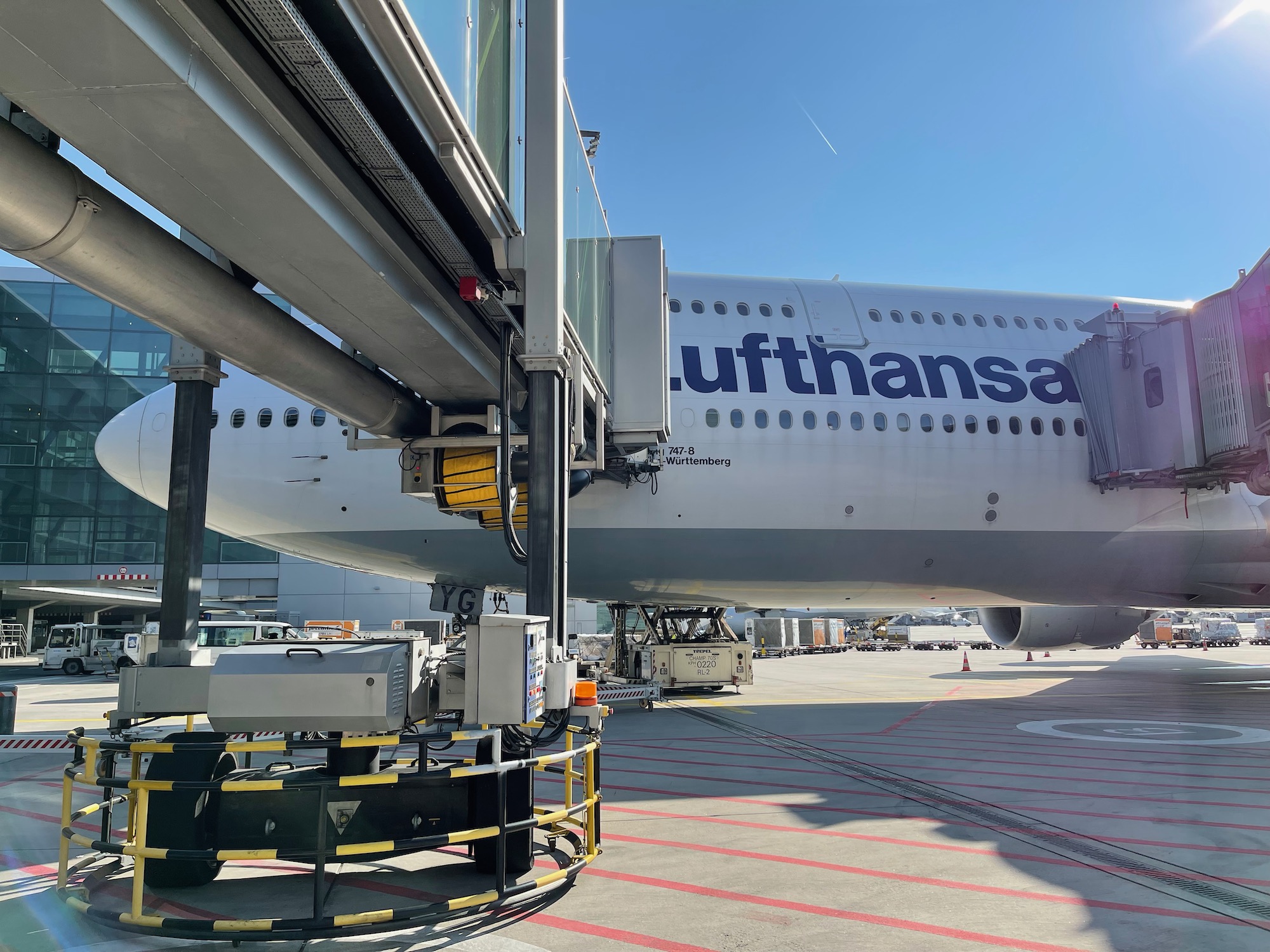Airports run by cities and counties that espouse green policies limit that when it affects their pocketbooks and this is most evident with airport slots.
If you are considering booking travel or signing up for a new credit card please click here. Both support LiveAndLetsFly.com.
If you haven’t followed us on Facebook or Instagram, add us today.
Cities and Counties Own Airport Authorities
Many cities and counties own the airport that serves the area or controls the “Airport Authority.” For example, the Allegheny Airport Authority controls Pittsburgh (and the former airport of the city, now an FBO). The cities of Elizabeth and Newark share Newark Liberty, while many European airports are privatized. Nevertheless, cities, counties, and federal authorities have some level of control over what an airport can or should require.

Slot Restrictions Require Foolish and Wasteful Flights
In order to retain ownership of highly coveted and (in normal times) profitable airport landing slots, the carriers must fly them at a certain minimum frequency. Without maintaining this, they risk forfeiture of the landing slots which would be extremely costly for future flights, plus the investment that had already been made in securing the slots.
To punctuate this, Continental paid more than $52MM USD per slot pair (one landing, one take-off) in 1998, Oman Air paid Kenya Airways $75MM for a single slot pair, and just last year Air New Zealand sold a pair at Heathrow for $27MM.
As a result, Lufthansa has seen just 50% of pre-pandemic seats sold, operating 60% of its pre-pandemic schedule currently. This winter, however, they will fly as many as 18,000 empty flights simply to maintain these slots. The airline has already canceled some 33,000 flights due to omicron yet that won’t be enough to comply, leading to “ghost flights” flown solely for this purpose.
“Because of the reduced demand in January, we even would have canceled considerably more flights,” Spohr said. “But in winter we will have to carry out 18,000 extra, unnecessary flights, just to secure our takeoff and landing rights.” – IFL Science
Brussels Airlines will operate some 3,000 ghost flights to maintain slots as well. While some of these examples involve European airports, this happens around the world in every country and slot constricted US airports are no different.
Some of the green new deal pros and cons revolve around the ability to execute significant policy changes and absorb, by most estimates, trillions of dollars in new investment costs. However, requiring carriers to fly empty flights during a global pandemic where demand has dropped significantly is the antithesis of combatting wasteful greenhouse gas emissions from fossil fuels and engaging in the climate crisis.
Adding further entry restrictions from federal governments, the private sector, and concern from the traveling public will mean lower demand for the foreseeable future. When the opportunity presented itself to harmlessly cut millions of tons of carbon, airports have chosen not to do that.

What To Do About Ghost Flights?
Every flight an airline operates yields revenue to both the departing and arriving airport. This could come in the form of landing fees, fuel, gate fees – even the jetway incurs a charge (this is why discount carriers in Europe like Ryan Air and Easy Jet do not use them by-in-large.)
If the airport allows an airline to not fly a slot as it will be flown empty, it not only loses the revenue from those fees but also presents business challenges when selling slots and maintaining rates for future sales.
However, airports could offer a number of options for airlines who would otherwise cancel flights rather than operate empty ghost flights.
- Reduce obligations for flying the routes based on emissions. For example, those carriers that can demonstrate using alternative energy sources (like renewable energy products from algae) could fly a lesser portion of their required slots to encourage lower emissions and allow airlines to further experiment with its utilization.
- Allow carriers to simply write a check to the airports to satisfy the revenue deficiency but not operate the flights if they so choose. This would save the expense of fuel, reduce strain on already limited crews, and cut losses for carriers that are struggling in addition to the vast environmental benefits. It’s an exchange of revenue and job guaranteeing the airport doesn’t miss a check, while allowing the carriers to participate in some of the reduced needs during this period.
- Voters and representatives have the power to legislate whether ghost flights are permitted or if even private airports must waive their ability to hold airlines’ feet to the fire when flights are flown solely to satisfy a requirement.
- Waive the requirements altogether, just as other businesses have done.
Conclusion
Cities that focus their efforts on tackling climate change could start with ghost flights. This is the low-hanging fruit that requires zero investment, costs zero to implement, and has an immediate effect. In the case of a few examples, those airports wouldn’t even lose revenue but could have a significant positive impact on the environment without the slightest inconvenience to the traveling public. Why not?
What do you think? Should airports, and in the case of cities/counties/governments that control them, incentivize an end to ghost flights? Does it feel disingenuous to implement other costly green measures while these free green measures are avoided in favor of revenue?




Airports don’t in general make slot waiver rules. In the EU, slot waiver rules are made by The EU in Brussels. And those are applied EU-wide. The airports have nothing to do with it. Similarly, for the slot controlled airports in the US, those airports don’t make slot policy. They’re done by the FAA. You really should do your research.
All this is simply another path to power and graft for the leaders. Some of the bottom rung supporters may be true believers, but not the ones setting policy. (By the way, I agree it makes no sense–but that is not what this is about)
Individual airports or Port Authorities do not have the power to do what you are suggesting. Slots guidelines come from IATA and the Federal Governments of the world follow those guidelines set by IATA.
This is a sloppy, misinformed article clearly meant to “dunk” on politicians who make claims about environmentalism.
Please stick to restaurant recommendations in Ft. Lauderdale.
Why not just change slots from being owned in perpetuity to being auctioned off for a lease period of 10 years? Also in the US there are only 3 slot restricted airports; JFK, LGA, and DCA. The vast majority of airports and flights worldwide aren’t to or from a slot restricted airport.
Indeed. Once a system is setup it is very hard to change it temporarily.
There is an article in cnn today abut how 8 hr sleep at night is a post industrial construct meant for us to get ready for work. Before that people didn’t sleep like that. All our lives geared to make the lives of our capitalist overlords better. Things are set and no one even questions. You are lazy if you do question it. The minions that would suffer than vote for a tax increase on their capitalist overlords are another kind that suffer from mental prison. Not to mention anyone that follows religion and believes in god. No proof of existence but here we are, people willing to die in his name but only for their version of him/her/it.
Once a system is set people follow it blindly. Anyone that questions is shunned as a heretic.